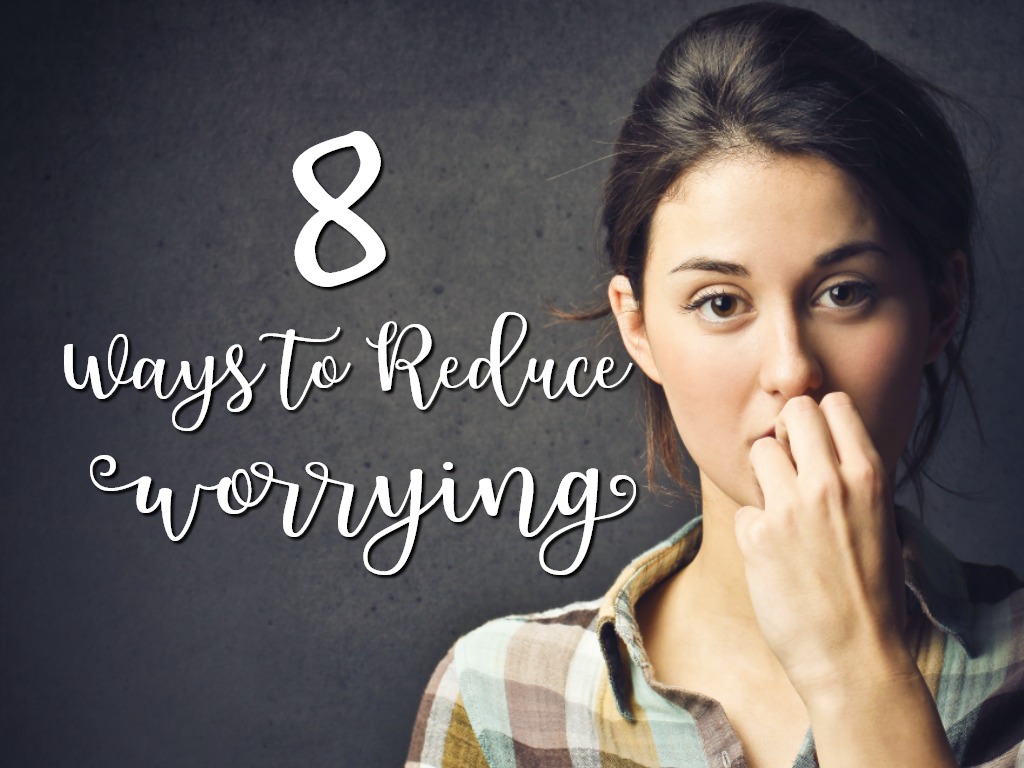8 Ways to Reduce Worrying
You can learn coping skills for worrying that will reduce your stress and clear your mind.
I am a worrier. I always have been. And I know that I’m not alone – many people today suffer from with anxiety that comes with or stems from worrying. They worry about everything and anything. The high tech, fast-paced society that we live in today is literally toxic to many people and they don’t really realize what is wrong with them. The truth is, it’s a mystery as to why more people aren’t plagued with anxiety-inducing stress. Perhaps some people have developed coping skills that help them get through the day without worrying.
Note: This post may contain affiliate links, which means if you buy from my link I might make a small commission. This does not affect the price you pay. See the full affiliate disclosure here.
You too can learn coping skills to deal with worrying. Here are 8 tips to reduce the amount of time you spend worrying so you can get out there and enjoy life!
First, Think about this:

Plan Ahead to Avoid Additional Stress
A lot of worrying is caused by not being prepared. If you often find yourself being worried in the morning about being late, or forgetting something at home, be sure to get prepared as much as possible the night before.
Set out the things you need to take with you near the door and/or make a list to check off each morning so that you do not forget anything. Even seasoned pilots use checklists every single time to avoid missing something.
Set a Time Limit for Worrying
Sometimes you just have to let it flow. Set aside some time each day or for each situation that causes you to worry and just worry as much as you want to for that period of time.
Set an alarm to help you end the worrying and stop it immediately if it goes too far and moves onto a panic attack. Some worrying is okay but don’t let it get too far. For most people, just allowing yourself to worry will result in less worry.
Get Rid of Time-Wasting Habits
As mentioned before, a lot of worry comes in the form of not having enough time. But, you’d be shocked at how much you do in a day that isn’t necessary and that just adds to your issues.
An example of this is when you cannot sleep at night due to your mind swirling with thoughts that you can’t seem to stop. Maybe if you turn off the computer and your phone and take time to do something more meaningful, like spending time with loved ones, you’ll find it easier to get to sleep.
Be Aware of Your Surroundings
Some forms of worrying come from being in the unknown or being caught off guard by something. The best defense of this is to always be mindful of what is going on around you.
If you are going to give a speech and you’re nervous, try going into the room that you’ll give the speech in well in advance of your speech, so that you can get a feel of the environment. You can figure out where you will stand, where your microphone is if there is one, and even where the exit is if you must leave.
Accept that Some Worrying Is Natural
No one on this earth is truly worry-free. This is an unrealistic expectation that can ultimately cause more worry when you start to worry about worrying. Worrying about worrying is the worst!
Try to differentiate between the worrying that most people experience and the unnatural worrying that leads to anxiety.
Journal Your Worries
For some people, writing down their feelings (including their worries) can do a lot to clear them out of their minds. Somehow seeing the worries written down on paper can be cleansing.

Don’t just write down the worry, also write down how to handle this worry so that the next time it comes up, you can deal with it easier.
Mediate and/or Pray
Taking the time out of your day to focus inward for ten minutes or so is one of the best things you can do. You can do this through meditation or prayer or both.
When you pray, get comfortable and truly mean what you say and try to keep it very positive.
When you meditate, instead of thinking about any one thing, try to focus your thoughts on nothing. It might help to develop a mantra, which are some words you say over and over again until they essentially have no meaning.
Exercise and Eat Right
This is the answer to everything, right? 🙂 Nothing can be more important that the food you eat and the body you have. Treat it right by moving a lot and eating right. Most of us think we don’t have enough time to eat right and exercise but the truth is, you don’t have enough time not to.
Eating right and exercising can add years to your life. You’ll gain more time than it takes so the excuse of not enough time is bogus. You only need about 30 minutes a day of exercise and you can eat right by planning ahead and using your crock pot and a pressure cooker to ensure that nothing takes too long to prepare. And honestly, nothing is faster than raw fruits and veggies.
Read More: 3 Ways Exercise Can Improve Your Mental Health
Reccommended Reading:
Pin This: You’re going to want to read it again later!
You can have some measure of control over worrying so that you can feel less anxious in most situations. But remember: Worry can lead to Anxiety and Panic. Trust me on this one. You’re going to want to practice these tips to reduce worrying, and you may also need to learn coping skills to reduce the anxiety that worrying causes.
It’s a cycle of worry, anxiety, panic… then worrying because your anxious, then being anxious about being anxious! I think that these tips will help you to get out of that cycle and get back to calm.
Read More: 5 Ways to Manage Your Anxiety Symptoms
Do you have a tip for reducing worry that wasn’t mentioned here? Tell me about it in the comments!








